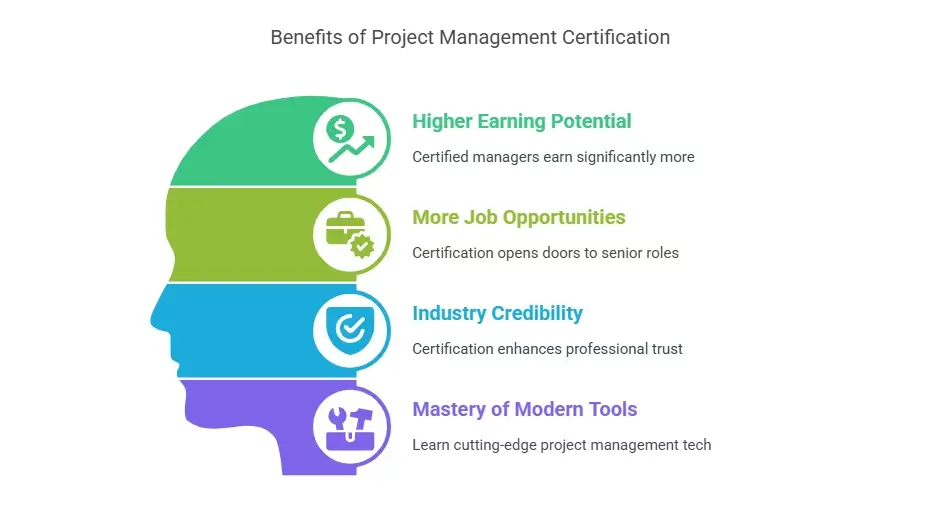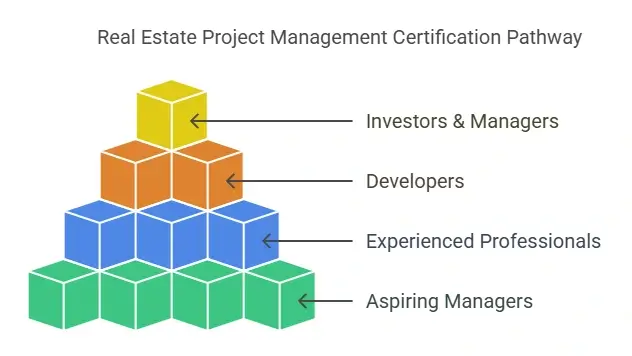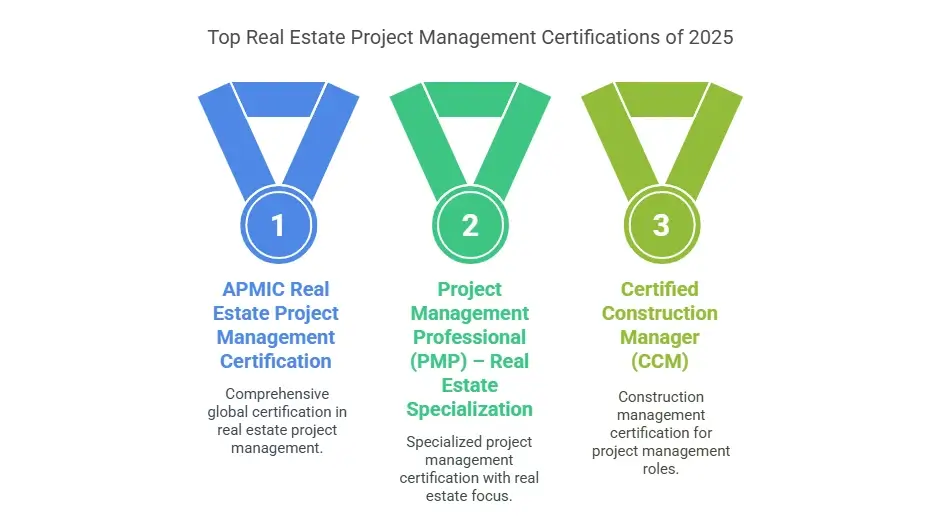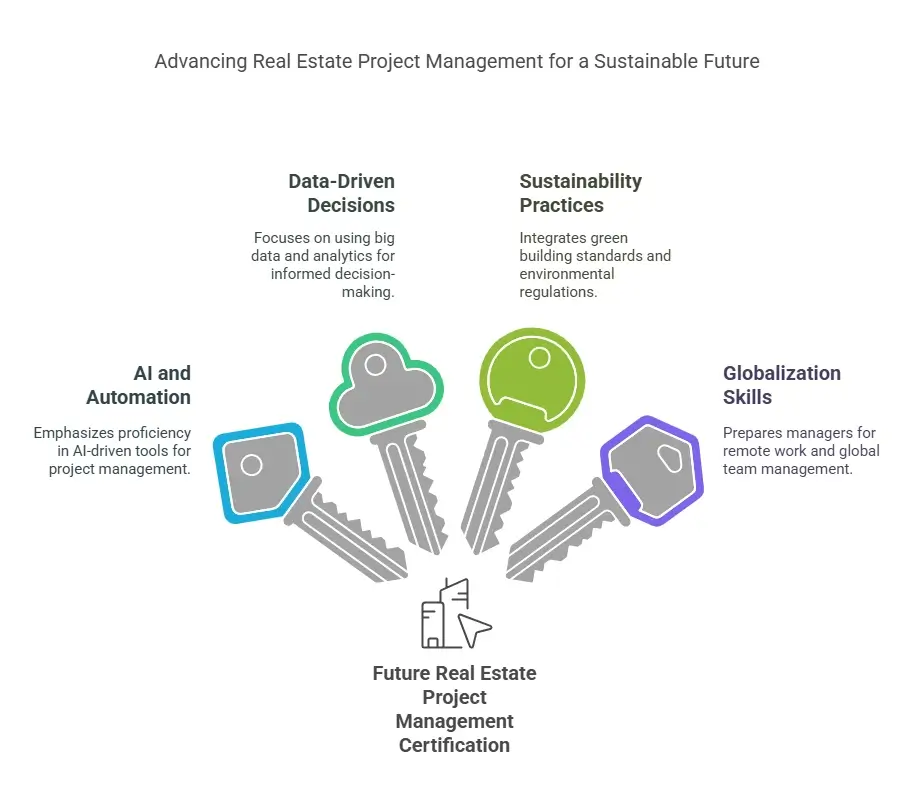Table of Contents
- Welcome to the Wild World of Real Estate Project Management!
- What is a Real Estate Project Management Certification?
- Why You Should Get Certified in 2025
- Who Should Get a Real Estate Project Management Certification?
- Top Real Estate Project Management Certifications in 2025
- Key Skills You’ll Learn Through Certification
- The Future of Real Estate Project Management Certification
- Case Studies: How Certification Transformed Careers
- 10 Less Commonly Known Facts About Real Estate Project Management
- Final Thoughts
- FAQs
Welcome to the Wild World of Real Estate Project Management!
So, you want to be the mastermind behind massive real estate developments, calling the shots while juggling budgets, timelines, and stakeholder expectations? Well, buckle up because real estate project management isn't just about hard hats and blueprints—it's an intricate dance of finance, risk management, and good old-fashioned negotiation. A real estate project management certification is your VIP ticket to this high-stakes industry, equipping you with the skills and credibility to take on complex projects and emerge victorious. Let’s break down everything you need to know about getting certified in 2025 and why it’s a game-changer for your career.

What is a Real Estate Project Management Certification?
A real estate project management certification is a professional credential that validates your ability to oversee real estate developments from conception to completion. It covers everything from feasibility analysis and zoning laws to construction oversight and financial planning. In essence, it’s proof that you can handle the chaos of real estate projects like a pro.
The best certifications, such as the APMIC Real Estate Project Management Certification, are designed to help professionals build expertise, enhance career opportunities, and stay ahead in a competitive industry.
Why You Should Get Certified in 2025
The real estate industry is evolving at breakneck speed. With new technologies, market fluctuations, and sustainability demands, project managers must be more skilled than ever. Here’s why getting certified is a no-brainer:

Higher Earning Potential: Certified project managers earn 15-25% more than their non-certified peers.
More Job Opportunities: Many top employers now require certification for senior project management roles.
Industry Credibility: A certification tells clients and employers that you know your stuff.
Mastery of Modern Tools: Learn about cutting-edge tech like AI-powered project forecasting and Building Information Modeling (BIM).
Who Should Get a Real Estate Project Management Certification?
This certification isn’t just for seasoned real estate professionals. If you fall into any of these categories, it could be your golden ticket:

Aspiring Project Managers: New to the industry? A certification gives you the foundation to land your first gig.
Experienced Construction Professionals: If you're a contractor or architect, certification can help you transition into project management roles.
Real Estate Developers: Want to sharpen your project execution skills? A certification ensures you manage budgets and timelines like a pro.
Investors & Property Managers: Understand the full lifecycle of real estate development to make better investment decisions.
If you’re looking for the best project management certification programs online, explore our detailed guide on top-rated certifications and their benefits.
Top Real Estate Project Management Certifications in 2025
While there are several certifications available, not all are created equal. Here are the best ones in 2025:

1. APMIC Real Estate Project Management Certification
Covers 400+ modules on financial modeling, zoning laws, and risk management.
Includes real-world case studies and interactive workshops.
Recognized globally by top real estate firms.
2. Project Management Professional (PMP) – Real Estate Specialization
Offers a broad project management framework with real estate-focused electives.
Best for those with general project management experience looking to specialize.
3. Certified Construction Manager (CCM)
Ideal for construction professionals moving into project management roles.
Focuses on construction timelines, budgets, and risk mitigation.
Key Skills You’ll Learn Through Certification
Becoming certified in real estate project management means you’ll develop expertise in:
Financial Modeling: Master budgeting, forecasting, and return-on-investment (ROI) analysis.
Risk Management: Identify risks before they become disasters.
Legal & Zoning Compliance: Navigate permits, zoning laws, and construction regulations.
Stakeholder Coordination: Manage architects, engineers, investors, and city planners seamlessly.
Sustainable Development: Understand eco-friendly construction practices and regulatory requirements.
For professionals in the tech industry, earning the best IT project management certification can be a game-changer in 2025. Check out our expert recommendations
The Future of Real Estate Project Management Certification
The real estate industry is evolving at an unprecedented pace, and so are the expectations for project managers. As we move into 2025 and beyond, certification programs are adapting to these changes to stay relevant.

1. AI and Automation in Project Management
Artificial Intelligence (AI) is revolutionizing how real estate projects are managed. From AI-driven risk analysis to automated scheduling, certified project managers are expected to have proficiency in these technologies. Certifications are now incorporating AI-based modules to help professionals stay ahead.
2. Data-Driven Decision Making
Modern project managers rely on big data and predictive analytics to make informed decisions. Future certification programs are placing greater emphasis on data literacy, enabling professionals to use real-time analytics for budgeting, resource allocation, and risk mitigation.
3. Sustainability and Green Building Certifications
With a global push for sustainability, project managers are now expected to have expertise in green building practices. Certifications are integrating sustainability modules to cover LEED, WELL, and BREEAM standards, ensuring that real estate developments align with environmental regulations.
4. Globalization and Remote Project Management
The rise of remote work has extended to project management. Certifications are now including training on managing global teams, handling cross-border regulations, and leveraging cloud-based collaboration tools.
If you're considering a real estate project management certification, choosing one that embraces these future trends will give you a significant competitive edge.
Pro Tip: Understanding the importance of project management certification PMI can help you align with globally recognized industry standards and advance your career
Case Studies: How Certification Transformed Careers
Still wondering if getting certified is worth it? Here are some real-life success stories that prove the power of certification in real estate project management:
Case Study 1: From Site Engineer to Project Director
📌 The Challenge:
John, a site engineer with five years of experience, struggled to advance into leadership roles despite his technical expertise. Employers required project management credentials, and he found himself stuck.
📌 The Certification:
John pursued the APMIC Real Estate Project Management Certification, which covered budgeting, risk management, and legal compliance—critical skills for leadership roles.
📌 The Outcome:
Within a year, John landed a promotion to Project Director, overseeing multimillion-dollar developments. His certification validated his skills and made him a top choice for senior management positions.
Case Study 2: Breaking Into the Industry Without Prior Experience
📌 The Challenge:
Sarah, a finance professional, wanted to transition into real estate project management but lacked hands-on experience.
📌 The Certification:
She completed an industry-recognized certification that included a practical internship.
📌 The Outcome:
Her certification helped her secure her first project management role at a real estate development firm, bypassing the traditional experience barrier.
These stories highlight how a real estate project management certification can be the key to career growth, no matter your starting point.
10 Less Commonly Known Facts About Real Estate Project Management
AI-powered forecasting is now used to predict project delays with 85% accuracy. Forbes
The world’s tallest modular building was completed 30% faster than traditional construction. Arch Daily
Sustainable building certifications can increase property value by up to 10%. USGBC
Drones are now used for real estate project inspections, cutting survey costs by 50%. Construction Dive
Virtual reality (VR) tours reduce pre-sale construction marketing costs by 40%. Propmodo
Prefabrication can reduce real estate project costs by up to 20%. McKinsey
Blockchain technology is being used to streamline property transactions. CNBC
Smart contracts are automating property transactions, eliminating the need for intermediaries. Investopedia
Eco-friendly concrete reduces carbon emissions by 30%. Green Building Advisor
Noise pollution laws are becoming a major consideration in urban real estate development. Urban
Final Thoughts
Getting a real estate project management certification in 2025 is a career-defining move. Whether you're new to the industry or a seasoned professional, certification will give you the expertise and credibility needed to lead complex projects with confidence.
If you’re serious about becoming a top-tier real estate project manager, check out the APMIC Project Management Certifications — they offer some of the best programs in the industry. Invest in your future today!
FAQs
Is a real estate project management certification worth it?
Absolutely! It boosts your credibility, opens up better job opportunities, and increases your earning potential.
Can I get a certification without prior experience?
Yes! Many programs, including APMIC, offer beginner-friendly modules.
How long does it take to get certified?
Most programs take 3-6 months, but accelerated courses can be completed in as little as 8 weeks.
What is the best certification for real estate project management?
The APMIC Real Estate Project Management Certification is widely regarded as the best due to its in-depth curriculum and global recognition.
How much does certification cost?
Programs range from $1,000 to $5,000, depending on the provider and course depth.
Can I complete the certification online?
Yes! Many top programs, including APMIC, offer flexible online courses.
Do certifications expire?
Some require renewal every 3-5 years, while others are lifetime credentials.
What industries hire certified real estate project managers?
Real estate firms, construction companies, government agencies, and private developers all hire certified professionals.



